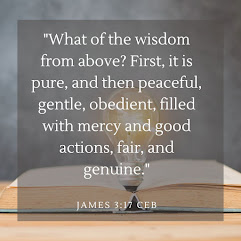Arise! Shine! Your light has come;
the Lord’s glory has shone upon you.
Though darkness covers the earth
and gloom the nations,
the Lord will shine upon you;
God’s glory will appear over you.
Isaiah 60:1-2 CEB
I don’t know about you, but I have been feeling a bit down lately, as though there’s been this dark cloud hanging over everything. At first, I thought maybe it was because I haven’t been getting enough sleep. I also know that, at least for me, my diet plays a big part in my mood; garbage in, garbage out as they say, and I have certainly been putting a lot of garbage in. But otherwise, my life in general has been pretty good. I just haven’t been able to nail down where this cloud was coming from.
But something occurred to me last week, as I was scrolling through the news, online message boards, and social media apps. There is a ton of negativity out there. Every news article I read, nearly every post, and/or comment that I saw, had something negative to say, or some critique needing to be shared. There is always some scandal, there is always some critique, and there is always some mention of violence or someone being nasty to someone else.
As a pastor dealing with pastoral care issues, it’s not uncommon when feeling empathy toward others to absorb some of those emotions. It becomes dangerous, however, when we begin reflecting those emotions back, it’s called countertransference. I think part of the reason I have been feeling this dark cloud lately, is that I have been absorbing some of the negativity found across the media.
I often wonder if the world is really as horrible as it appears, or if it just seems that way because that is all we tend to see when we turn on the tv, listen to the radio, or scroll through social media. I do believe that our attention tends to be drawn to negative things. Media companies know this and so that is what is put before us. Our attention makes them money. But I also wonder if by constantly absorbing this kind of content, we aren’t engaging in a bit of countertransference by reflecting back some of the negativity we receive. I don’t know how much if any of this is true, but it makes sense to me.
So as I reflected on this over the last several days, a scripture passage kept coming to me. It’s Ephesians 4:29, “Don’t let any foul words come out of your mouth. Only say what is helpful when it is needed for building up the community so that it benefits those who hear what you say.” I like to think of these moments as the work of the Holy Spirit. I think it goes without saying, that we are living in difficult times. There are a lot of people suffering in various ways throughout the world. That suffering can’t help but be expressed in popular culture, in the news, and on social media. Folks get angry and they lash out. But this verse from Ephesians reminds me of what my faith is about, and what I am called to do as a follower of Christ.
As a Christian, I am called to share the light of Christ’s love, mercy, compassion, empathy, justice, and hope with a world swimming in darkness. God uses me and my fellow brothers and sisters in the faith to carry out what Isaiah says in our opening verse, “Though darkness covers the earth and gloom the nations, the Lord will shine upon you; God’s glory will appear over you.”
So here is what I began this week, and maybe you can join me. I began to limit my exposure to social media, the news, and other forms of media so that I can control some of this countertransference I have been experiencing. I sent several short notes to folks who I had been thinking about lately to let them know that they were on my mind and that I was praying for them. And I went with several of my church members after worship to do a service project helping one of our neighbors with some yard work. I have committed to only post positive things on social media to counter some of the negative ones and to smile and wave at those passing by.
What are some other ways that we can limit the negativity, and build the community up? Maybe buy someone a cup of coffee. Spend some money at a local business, or shop at the farmers market. Give someone a call you haven’t spoken to in a while. Open a door for someone, or offer to take someone’s cart back to a stall at the store. If you see a piece of trash on the side of the road, pick it up. I’m sure you can think of any number of other things.
I realize none of this will solve the major problems of the world like poverty, climate change, racism, income inequality, the high cost of healthcare, or homelessness, but it’s something everyone can do. Jesus says, “This is how everyone will know that you are my disciples, when you love each other.” (John 13:35, CEB) So let's love one another, and shine a bit more of God’s light in the darkness.


